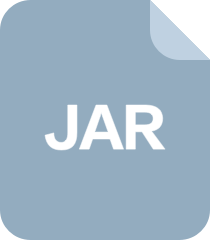
Oracle® Fusion Middleware
Release Notes for Oracle GoldenGate
19c (19.1.0)
E98071-04
October 2019

Oracle Fusion Middleware Release Notes for Oracle GoldenGate, 19c (19.1.0)
E98071-04
Copyright © 2019, Oracle and/or its affiliates. All rights reserved.
Primary Author: Oracle Corporation
This software and related documentation are provided under a license agreement containing restrictions on
use and disclosure and are protected by intellectual property laws. Except as expressly permitted in your
license agreement or allowed by law, you may not use, copy, reproduce, translate, broadcast, modify,
license, transmit, distribute, exhibit, perform, publish, or display any part, in any form, or by any means.
Reverse engineering, disassembly, or decompilation of this software, unless required by law for
interoperability, is prohibited.
The information contained herein is subject to change without notice and is not warranted to be error-free. If
you find any errors, please report them to us in writing.
If this is software or related documentation that is delivered to the U.S. Government or anyone licensing it on
behalf of the U.S. Government, then the following notice is applicable:
U.S. GOVERNMENT END USERS: Oracle programs, including any operating system, integrated software,
any programs installed on the hardware, and/or documentation, delivered to U.S. Government end users are
"commercial computer software" pursuant to the applicable Federal Acquisition Regulation and agency-
specific supplemental regulations. As such, use, duplication, disclosure, modification, and adaptation of the
programs, including any operating system, integrated software, any programs installed on the hardware,
and/or documentation, shall be subject to license terms and license restrictions applicable to the programs.
No other rights are granted to the U.S. Government.
This software or hardware is developed for general use in a variety of information management applications.
It is not developed or intended for use in any inherently dangerous applications, including applications that
may create a risk of personal injury. If you use this software or hardware in dangerous applications, then you
shall be responsible to take all appropriate fail-safe, backup, redundancy, and other measures to ensure its
safe use. Oracle Corporation and its affiliates disclaim any liability for any damages caused by use of this
software or hardware in dangerous applications.
Oracle and Java are registered trademarks of Oracle and/or its affiliates. Other names may be trademarks of
their respective owners.
Intel and Intel Xeon are trademarks or registered trademarks of Intel Corporation. All SPARC trademarks are
used under license and are trademarks or registered trademarks of SPARC International, Inc. AMD, Opteron,
the AMD logo, and the AMD Opteron logo are trademarks or registered trademarks of Advanced Micro
Devices. UNIX is a registered trademark of The Open Group.
This software or hardware and documentation may provide access to or information about content, products,
and services from third parties. Oracle Corporation and its affiliates are not responsible for and expressly
disclaim all warranties of any kind with respect to third-party content, products, and services unless otherwise
set forth in an applicable agreement between you and Oracle. Oracle Corporation and its affiliates will not be
responsible for any loss, costs, or damages incurred due to your access to or use of third-party content,
products, or services, except as set forth in an applicable agreement between you and Oracle.

Contents
Preface
Documentation Accessibility v
Conventions v
Related Information vi
1
Introduction
1.1 Latest Release Information 1-1
1.2 Purpose of this Document 1-1
1.3 Certification Information 1-1
1.4 Product Documentation 1-1
1.5 Oracle Support 1-1
1.6 Licensing Information 1-2
2
What’s New in this Release
2.1 New Features 2-1
2.1.1 Critical Security Updates 19c (19.1.0) - September 2019 2-1
2.1.2 Release 19c (19.1.0) - September 2019 2-2
2.1.3 Release 19c (19.1.0) - May 2019 Initial Release 2-3
2.2 Default Behavior Changes 2-7
2.2.1 Release 19c (19.1.0) - September 2019 2-7
2.2.2 Release 19c (19.1.0) - May 2019 Initial Release 2-8
2.3 Deprecated and Desupported Features and Parameters 2-9
2.3.1 Release 19c (19.1.0) - September 2019 2-9
2.3.2 Release 19c (19.1.0) - May 2019 Initial Release 2-9
3
Known Issues and Workarounds
3.1 Release 19c (19.1.0) - September 2019 3-1
3.2 Release 19c (19.1.0) — May 2019 Initial Release 3-3
iii

Preface
This document describes the new features, major changes, and known issues for this
release of Oracle GoldenGate.
• Documentation Accessibility
• Conventions
• Related Information
Documentation Accessibility
For information about Oracle's commitment to accessibility, visit the Oracle
Accessibility Program website at
http://www.oracle.com/pls/topic/lookup?
ctx=acc&id=docacc
.
Accessible Access to Oracle Support
Oracle customers who have purchased support have access to electronic support
through My Oracle Support. For information, visit
http://www.oracle.com/pls/topic/
lookup?ctx=acc&id=info
or visit
http://www.oracle.com/pls/topic/lookup?
ctx=acc&id=trs
if you are hearing impaired.
Conventions
The following text conventions are used in this document:
Convention Meaning
boldface Boldface type indicates graphical user interface elements associated
with an action, such as "From the File menu, select Save." Boldface
also is used for terms defined in text or in the glossary.
italic
italic
Italic type indicates placeholder variables for which you supply
particular values, such as in the parameter statement:
TABLE
table_name
. Italic type also is used for book titles and emphasis.
monospace
MONOSPACE
Monospace type indicates code components such as user exits and
scripts; the names of files and database objects; URL paths; and input
and output text that appears on the screen. Uppercase monospace
type is generally used to represent the names of Oracle GoldenGate
parameters, commands, and user-configurable functions, as well as
SQL commands and keywords.
UPPERCASE Uppercase in the regular text font indicates the name of a utility unless
the name is intended to be a specific case.
{ } Braces within syntax enclose a set of options that are separated by
pipe symbols, one of which must be selected, for example:
{option1
|
option2
|
option3}
.
v



















